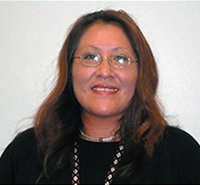 Why did you choose your specific health professional career?
Why did you choose your specific health professional career?
Since high school, I was encouraged by my parents to take all the offered math and science courses. I was encouraged pretty much to stay away from anything extracurricular. My parents were very influential. For some reason my parents influenced me to take math and science courses throughout high school. Thanks to them I think I placed pretty high in math. This idea carried over to college. At college, I took my parents’ advice and took as many math and science courses possible. I started with a degree in microbiology, but eventually I started searching for a major. I found that I liked medical microbiology, so I geared my studies in that direction. I started with math and ended up in microbiology.
What experiences did you have to make sure this profession was right for you?
One of the things I did to make sure this profession was right for me was I took part in a program called the Minority Biomedical Research Support Program (MBRS) at Northern Arizona University. I applied for a job through the program and became a research aide to one of the professors who was doing a study on infectious diseases which are prevalent on the Navajo Reservation. I did antimicrobial research and he allowed me to do my own research as well. I actually have published research material in my name. I have presented the information at the national conferences while I was in college. So that was one of the things that I did to make sure that this is what I wanted to do as a health career. I don’t know if MBRS is still available, but participating in a similar program would help. I also started volunteering at the Indian Hospital in Whiteriver AZ; that was where I was taught how to draw blood and do urine dip sticks. Volunteer experience is important. Take advantage of programs that are offered at universities.
Describe any obstacles or barriers to success that you encountered along your health professional career path and how did you overcome them?
One of the obstacles that I’ve encountered was trying to find the correct career path. How did I overcome finding a career path? By looking into various fields. I had many different jobs. I worked for the American Red Cross, and Missouri Analytical Laboratories, which did research on antibiotics, as well as the Environmental Protection Agency. I finally settled on the Indian Health Service because of all it had to offer. I think the most recent obstacle, while in my field as a lab manager, is the shortage of medical technologists. As a lab manager, I need medical technologists in the laboratories at Phoenix Indian Medical Center (PIMC). To overcome this obstacle, I’ve been meeting with delegates at ASU and Arizona schools to bring Native American MLT students, medical technician students, and high school students into our laboratories to see what we are doing in the hopes that we will recruit more people into our medical laboratories. We’ve also increased salary offers. Hopefully this will be successful. I think that about 20% of the medical technicians right now are close to retirement. When they do retire we will need even more medical technologists. In that sense, I’m doing what I can to bring Native Americans tudents into our laboratories to work and observe the laboratory through externships in the hopes they will stay.
What do you do in your current job?
I’m the Laboratory Manager. Currently, I oversee the microbiology department, hematology department, chemistry department, and histology & scientology department. In addition, I supervise medical technologists in these departments. I try to make sure we are fully staffed, and that the work flows. In addition, I figure out work shift coverage and how to keep costs within the budget of the lab.
What advice do you have for American Indian/Alaska Native students who are interested in health careers?
My advice to Native American students who are interested in health careers is to volunteer at an Indian hospital in whatever profession interests you. Also do the same thing I did; if there are programs at your university where you can do research try it - it will give you a look inside different health careers.
Tribal Affiliation: White Mountain Apache Tribe
Current Position: Laboratory Manager, Indian Health Service, Phoenix Indian Medical Center (PIMC)
Health Professional Degree(s): Bachelor of Science in Microbiology, Masters in Health Administration
Schools Attended: Northern Arizona University, 1991; University of Phoenix, 2007
Area of Focus/Specialty: Pathology/Clinical Laboratory
“My parents were very influential.”

